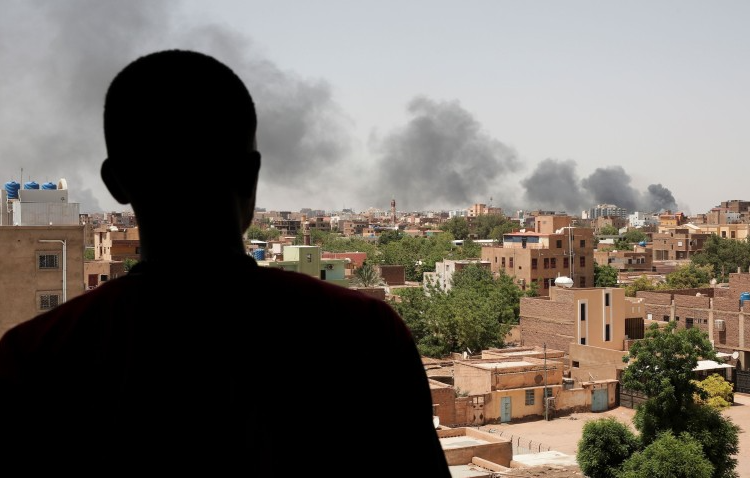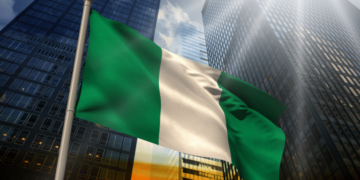Peace is a relative term for the people of Sudan, a good day being one when they can go about their daily lives without fearing attack. There have been few such days in Sudan’s 70 years as an independent nation.
Despite enormous natural endowments and $4-billion annually in official development assistance, chronic insecurity consigns Sudan to the lower ranks of poor nations: 167th out of 191 on the United Nations Human Development Index. 14% of its 46 million population is mired in extreme poverty.
Before the current conflict erupted on 15 April 2023, three million Sudanese were internally displaced and a million were refugees from neighbouring countries. Overall, some 16 million depended on humanitarian assistance for life-sustaining essentials such as food, water, and shelter including three million malnourished children. Climate-induced disasters such as droughts and floods, and disease outbreaks added to their woes.
The UN’s Humanitarian Response Plan for 2023 demanded $1.7-billion but received only 14% of that total. All such statistics are now moot. The swift and devastating impact of the present crisis has killed hundreds and wounded thousands. Widespread looting of food warehouses, attacks on public infrastructure, interrupted supply chains and black-market profiteering in fuel and other essentials multiply the misery of desperate civilians.
Forty per cent of Sudanese live in cities and the urbanised nature of today’s violence means that populations dependent on electricity, running water, internet, cars, mobile banking and supermarkets don’t cope well when modern support systems collapse. An ageing population with chronic diseases can’t get regular medication and mothers can’t deliver babies safely when most hospitals have been bombed or forcibly closed by fighters.
Troubles were predicted by many analysts some time ago but ignored by policymakers. So, when violence erupted, it wrong-footed everyone. The subsequent exodus of diplomats and foreign aid workers caused further dismay and panic.
Sudan’s shock implosion is the consequence of the flawed compromise pushed by the international community after a popular uprising in 2019 removed the long-standing dictator president Omar Al-Bashir. This allowed the security forces to remain in charge while promising a gradual move to democracy. But there was no process for accountability and justice for the egregious abuses of security forces over previous decades. Military-civil transitions founded on that basis never work, as contemporary experiences from Myanmar, Mali, and Chad indicate.
The present conflict has roots deep in the Darfur genocide of 2003/4. This was carried out by Al-Bashir’s army alongside auxiliary Janjaweed militia — later transformed into the Rapid Support Forces (RSF).
Directed against black African Darfuris, the genocide was hallmarked by mass rapes and whole-scale destruction of homes and livelihoods. 300,000 people died and 2. 5 million were displaced.
Al-Bashir entered history as the first serving head of state to be indicted by the International Criminal Court (ICC) on genocide and other crimes against humanity with arrest warrants issued in 2009 and 2010. But he evaded justice thanks in no small measure to South Africa which refused to arrest Al-Bashir when he visited in 2015, despite its own judiciary demanding that the authorities do so.
South Africa’s stance encouraged others and Al-Bashir also travelled to Uganda, Kenya, Chad, Malawi, DRC, Central African Republic, Egypt, Jordan and elsewhere with impunity.
The course of Sudanese — and African — history would have been completely different if South Africa had acted according to its ICC membership obligations. Subsequently, although Al-Bashir was pushed out by Sudan’s own courageous civil resistance movement, his own military remained in control and protected him in comfortable detention in Khartoum.
His successors were Army Chief General Abdel Fattah al-Burhan, and RSF commander General Mohamed Hamdan Dagalo aka Hemedti. Their violent power competition is causing Sudan’s current strife. Although this ignited in Khartoum, the absence of genocide accountability and restitution allowed festering resentments to resurface in fresh ethnicised violence in Darfur. Other marginalised regions such as Nuba, Blue Nile, and Abyei may follow, as other armed groups seek to settle old scores
It is not hard to understand this blind spot. Regional powers such as Saudi Arabia and UAE, and farther afield China, have strong economic stakes, especially around gold, oil, and agriculture.
Neighbouring South Sudan, Egypt, and Ethiopia have security sensitivities hosting each other’s refugees. Also, resource-sharing concerns, now including water from the contentious Grand Ethiopian Renaissance Dam. Eritrea has also been interfering in Sudan as it supports discontented groups in eastern Sudan.
Private security actors such as Russia’s Wagner Group and various militias from Libya and Chad profit from the chaos. As does the RSF which has benefitted from European Union funds received in Sudan for border policing to discourage refugee flows towards Europe. RSF also gained valuable combat experience and income from fighting in Yemen.
The contradictory influences of competing nations with fingers in the Sudan pie mean that the multilateral African Union, Arab League, or UN find it difficult to exercise their good offices or have little leverage when their own memberships work at cross purposes.
While outsiders cannot impose peace, they can cease malign activities such as supporting their preferred armed factions or the rapacious extraction of Sudan’s resources that feeds corruption and criminality. They must stop making shabby compromises that bolster the power of unprincipled generals.
The present paroxysm derives from the Darfur genocide, and it is there that it must be defused through serving long-delayed justice by surrendering the genocide masterminds, Omar al-Bashir and Ahmed Haroun, to the ICC. The 1994 Rwanda genocide teaches the importance of accountability that combines both international and domestic tracks to reset a ver, this is improbable in Sudan without a popularly mandated civilian government, and that means a resumption of the internal struggle for democracy. It requires sustaining ordinary citizens through the crisis. This brings us to humanitarian aid.
Although foreign aid workers may creep back into Sudan, that is not the answer because of the way in which the multi-billion-dollar global humanitarian enterprise operates. It is risk-averse and increasingly distrusted across a range of crisis-torn countries where it disappoints people because of its inflexible, inefficient, and inconsistent dispensations. Its alleged neutrality is often perceived as legitimising the oppressor while binding the wounds of the victims.
They bring hope with whatever aid they can scrounge or assistance they can render. They help each other to survive to continue the struggle for their rights. That is why calling them humanitarians diminishes their contribution — they are actually resisting oppression.
Sudan’s Resistance Committees are proving yet again that the most practical succour in crises comes from within suffering communities. Such as the White Helmets saving lives in Northwest Syria and the home bakers of Ukraine boosting morale. Or Afghan teachers bringing hope by running underground girls’ schools, and bullet-evading medics providing healing in Myanmar.
In the coming weeks, Sudan’s external well-wishers should take their lead from local people. That means, using aid differently in decentralised ways that bolster existing capacities. For example, food aid to build food security and not dependence; disaster relief to create environmental and family resilience; healthcare to people’s neighbourhoods and not prestigious disease palaces; small-area solutions for water and sanitation, not unsustainable leaky infrastructure; and creating small employment-generating businesses, not massive profit corporations.
Aid must not be co-opted into the war economy. Trickling-in and diffusing aid through small-cash transfers via formal banking and informal family support systems is a less tempting target for fighters who survive by looting large warehouses and shiny vehicles beloved of large aid organisations.
Critically, involvement in Sudan for conflict mediation or humanitarian provision must disrupt the status quo that perpetuates crises. By ending the culture of impunity that has prevailed for so long; by standing up to vested interests that resist change.
Above all, this requires Sudan’s partners to listen to what the country’s long-suffering citizens want and acquiring the wisdom to act beyond their own self-interests.
Source: DM
– Mukesh Kapila CBE is the former United Nations Resident and Humanitarian Coordinator for Sudan. He is Professor Emeritus of Global Health and Humanitarian Affairs, University of Manchester; and Senior Adviser to the Parliamentary Assembly of the Mediterranean.





